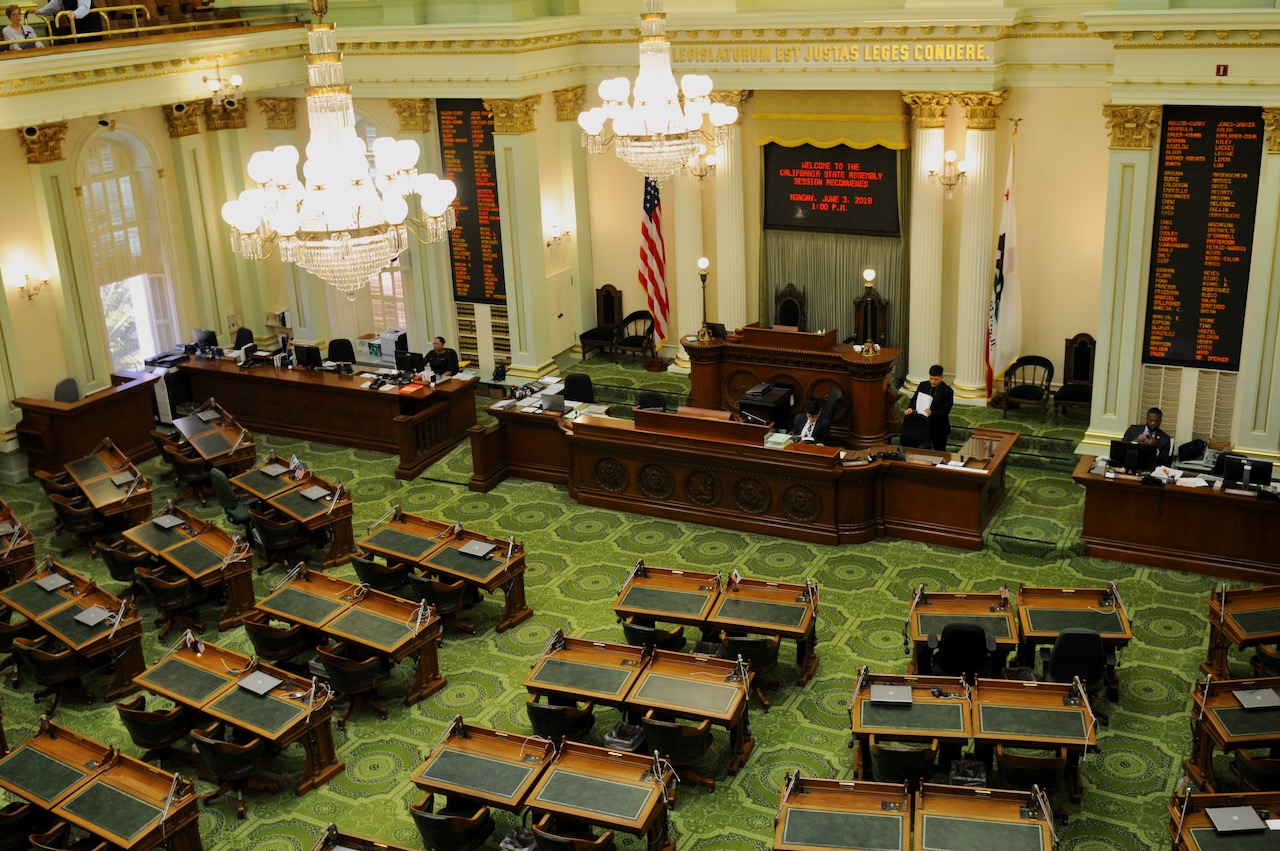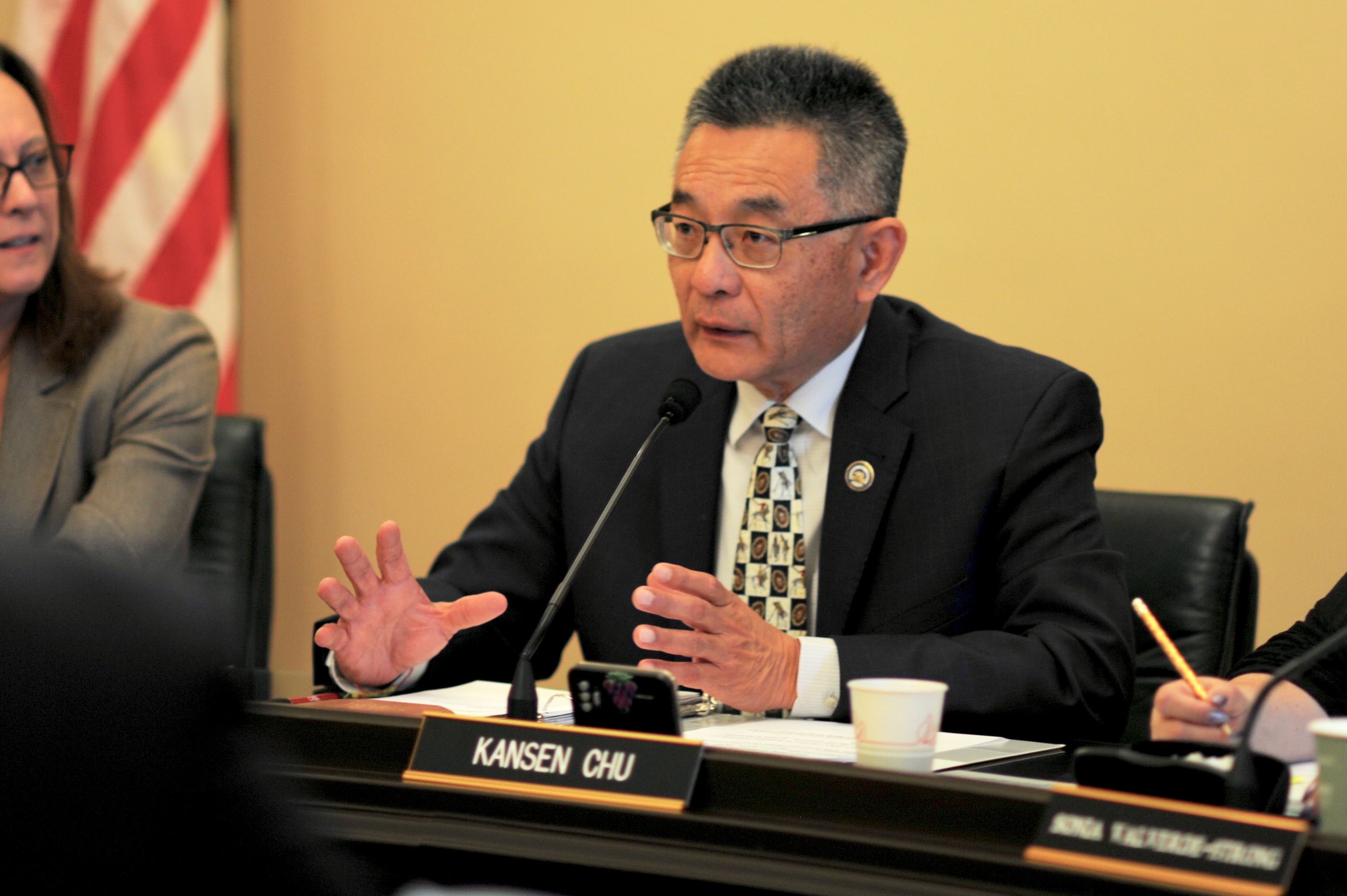
Senator Connie M. Leyva. (Photo: Kevin Sanders for California Globe)
Amended Cal-OSHA Regulation Exemption Bill
SB 410 exempts certain Cal-OSHA regulations from a regulatory impact assessment
By Chris Micheli, March 4, 2021 2:26 pm
On March 3, Senator Connie Leyva (D-Chino) amended her Senate Bill 410 to exempt certain Cal-OSHA regulations from a regulatory impact assessment. The bill would amend Labor Code Section 142.4. Existing law provides that Occupational safety and health standards and orders are required to be adopted, amended, or repealed as provided in Chapter 3.5 (commencing with Section 11340) of Part 1 of Division 3 of Title 2 of the Government Code, except as modified by this chapter. Chapter 3.5 deals with Administrative Regulations and Rulemaking, which is the state’s Administrative Procedure Act (APA).
SB 410 would provide that, notwithstanding the requirement that Cal-OSHA regulations comply with the Administrative Procedure Act, an occupational safety and health standard and order is specifically exempt from Government Code Section 11346.3(c). Section 11346.3(c) reads as follows:
(c) (1) Each state agency proposing to adopt, amend, or repeal a major regulation on or after November 1, 2013, shall prepare a standardized regulatory impact analysis in the manner prescribed by the Department of Finance pursuant to Section 11346.36. The standardized regulatory impact analysis shall address all of the following:
(A) The creation or elimination of jobs within the state.
(B) The creation of new businesses or the elimination of existing businesses within the state.
(C) The competitive advantages or disadvantages for businesses currently doing business within the state.
(D) The increase or decrease of investment in the state.
(E) The incentives for innovation in products, materials, or processes.
(F) The benefits of the regulations, including, but not limited to, benefits to the health, safety, and welfare of California residents, worker safety, and the state’s environment and quality of life, among any other benefits identified by the agency.
(2) This subdivision shall not apply to the University of California, the Hastings College of the Law, or the Fair Political Practices Commission.
(3) Information required from state agencies for the purpose of completing the analysis may be derived from existing state, federal, or academic publications.
In addition, SB 410 would specify that nothing in this chapter of the Labor Code exempts an occupational safety and health standard and order from the requirement to prepare an economic impact assessment pursuant to Government Code Section 11346.3(b), regardless of whether the occupational safety and health standard and order is a major regulation or is not a major regulation. Section 11346.3(b) reads as follows:
(b) (1) A state agency proposing to adopt, amend, or repeal a regulation that is not a major regulation or that is a major regulation proposed prior to November 1, 2013, shall prepare an economic impact assessment that assesses whether and to what extent it will affect the following:
(A) The creation or elimination of jobs within the state.
(B) The creation of new businesses or the elimination of existing businesses within the state.
(C) The expansion of businesses currently doing business within the state.
(D) The benefits of the regulation to the health and welfare of California residents, worker safety, and the state’s environment.
(2) This subdivision does not apply to the University of California, the Hastings College of the Law, or the Fair Political Practices Commission.
(3) Information required from a state agency for the purpose of completing the assessment may come from existing state publications.
(4) (A) For purposes of conducting the economic impact assessment pursuant to this subdivision, a state agency may use the consolidated definition of small business in subparagraph (B) in order to determine the number of small businesses within the economy, a specific industry sector, or geographic region. The state agency shall clearly identify the use of the consolidated small business definition in its rulemaking package.
(B) For the exclusive purpose of undertaking the economic impact assessment, a “small business” means a business that is all of the following:
(i) Independently owned and operated.
(ii) Not dominant in its field of operation.
(iii) Has fewer than 100 employees.
(C) Subparagraph (A) shall not apply to a regulation adopted by the Department of Insurance that applies to an insurance company.
SB 410 is expected to be heard in its first policy committee in late March.
- Sources of Law - February 26, 2026
- Commercial Fishing - February 26, 2026
- Are These Extra Words Needed in California Statutes? - February 25, 2026




